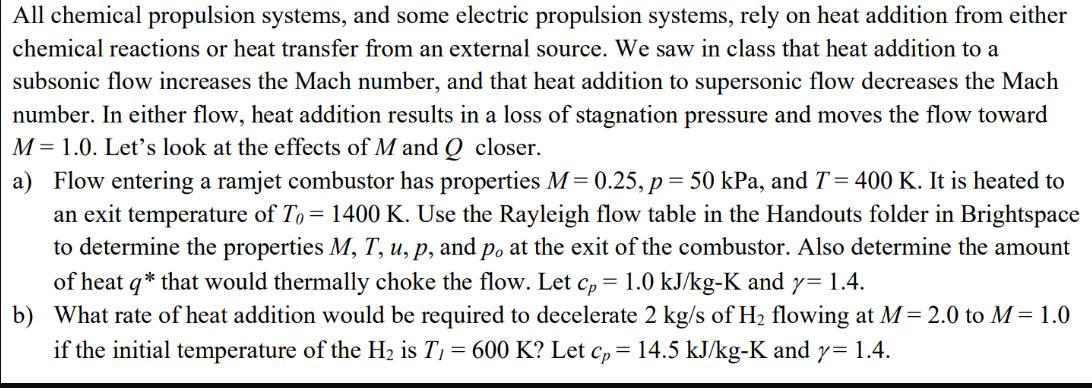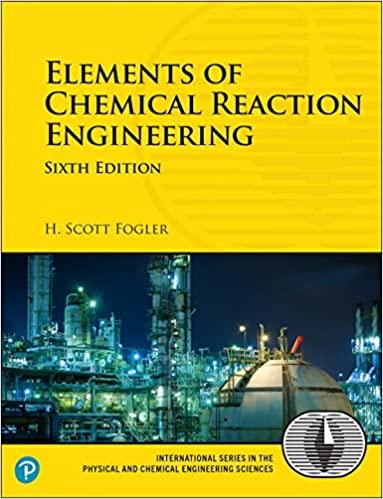Answered step by step
Verified Expert Solution
Question
1 Approved Answer
All chemical propulsion systems, and some electric propulsion systems, rely on heat addition from either chemical reactions or heat transfer from an external source.

All chemical propulsion systems, and some electric propulsion systems, rely on heat addition from either chemical reactions or heat transfer from an external source. We saw in class that heat addition to a subsonic flow increases the Mach number, and that heat addition to supersonic flow decreases the Mach number. In either flow, heat addition results in a loss of stagnation pressure and moves the flow toward M = 1.0. Let's look at the effects of Mand Q closer. a) Flow entering a ramjet combustor has properties M = 0.25, p = 50 kPa, and T = 400 K. It is heated to an exit temperature of To= 1400 K. Use the Rayleigh flow table in the Handouts folder in Brightspace to determine the properties M, T, u, p, and po at the exit of the combustor. Also determine the amount of heat q* that would thermally choke the flow. Let cp = 1.0 kJ/kg-K and y= 1.4. b) What rate of heat addition would be required to decelerate 2 kg/s of H flowing at M = 2.0 to M = 1.0 if the initial temperature of the H is T = 600 K? Let cp = 14.5 kJ/kg-K and y= 1.4.
Step by Step Solution
★★★★★
3.30 Rating (150 Votes )
There are 3 Steps involved in it
Step: 1
a The Rayleigh flow equations can be used to ascertain the characteristics at the combustors exit and the quantity of heat necessary to thermally chok...
Get Instant Access to Expert-Tailored Solutions
See step-by-step solutions with expert insights and AI powered tools for academic success
Step: 2

Step: 3

Ace Your Homework with AI
Get the answers you need in no time with our AI-driven, step-by-step assistance
Get Started


